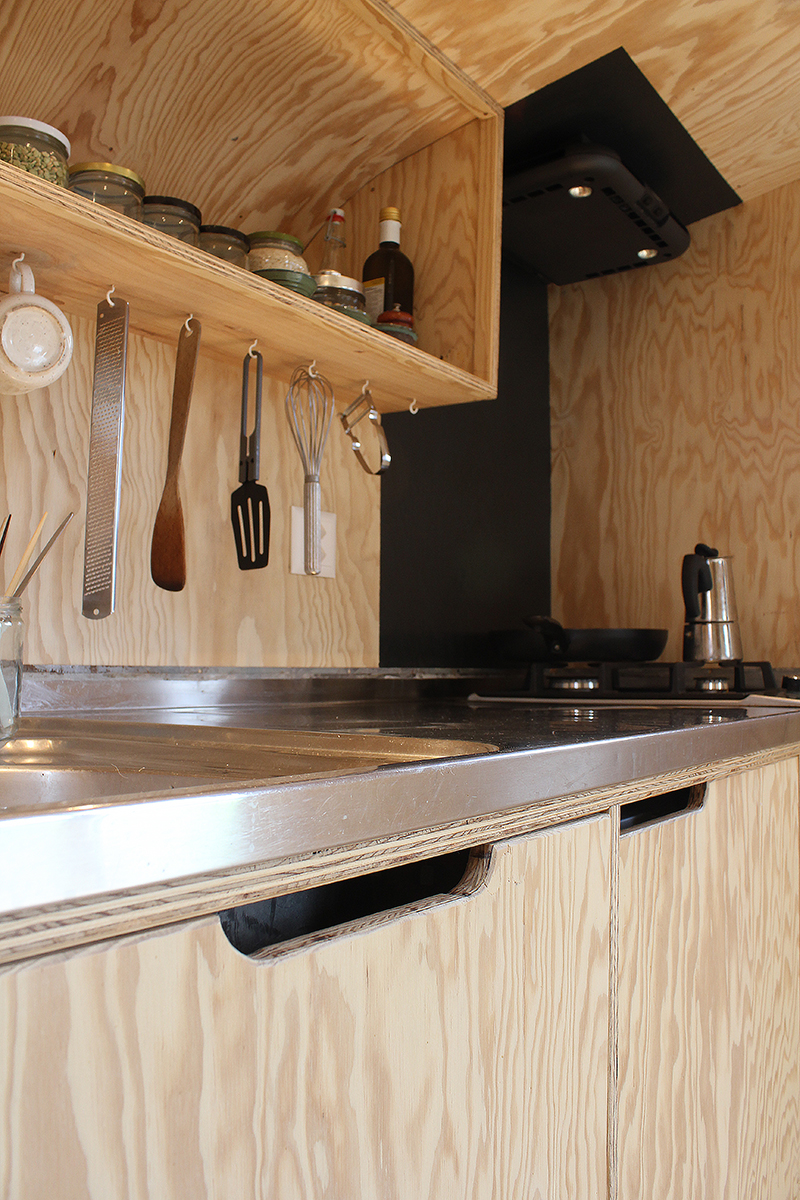I've purposely avoided creating an Instagram account; I feel like it is a form of consumerism. I could post many photogenic pictures of my morning coffee in the caravan, the hammock hung in the trees outside, the sunset on the mountain peaks, or the many delicious meals cooked in the tiny kitchen. But the essence of Tiny House living is doing more with less- and perhaps also doing more and posting less.
The story of Modern Humankind seems to be a story of excess.
Humans eat too much and then have to diet to try to save their health.
Humans work too much and then have to take anti-depressants to save
their sanity.
We have been systematically
replacing natural cycles with one-way tunnels that need human input. We
can look at agriculture this way, if we think of the fields of sterile
crops kept alive by synthetic fertilizers and pesticides. We can look at
the way livestock is raised, crowded in inhumane conditions and doped
on pharmaceuticals. We can look at our use of water: what other species
would pollute hundreds of thousands of litres of drinkable water just by
using it as a toilet? And then have to re-purify that same water with
chemicals?
Self-sufficient
systems are no good for profits. Any time input is needed, there's an
opportunity for someone to make money. And that's why the current
socio-economic system wants us to be as dependent as possible. Dependent, at the expense of all earthly systems. And there will be a backlash.
Create
a culture addicted to every kind of input imaginable, and then pull the plug: ideal conditions for social uprising. In mainstream society,
large-scale revolt hasn't happened yet. But in the news here in
Switzerland, they're talking about black-outs and gas and oil shortages
this winter. This summer, heat waves and drought have impacted everyone.
The hard conditions, extreme weather, resource shortages - they are
already happening.
I
didn't build my Tiny House to make a statement; I built it because I
realised that my values were incompatible with the lifestyle I was
forced to have by living in an apartment. But if there is a statement I
could make, it would be this: living with less is more comfortable than
you think. And it's easier to prepare for shortages as a free-thinking
individual than be forced into submission by some higher power. There's
less fear involved, more of a sense of adventure.
So what is the secret to living with less?
1- Don't think that you've 'earned' or that you 'deserve' something. I
feel like a lot of people are stuck in a mentality that they can't
willingly give up or pass up on 'stuff' (a second car? a second home? a
third television? the newest iphone?) because they've 'worked so hard'
to earn it. But all the things a person can own are based on resources
extracted from the earth (and probably those resources were transformed
by some unfortunate human in much poorer conditions than you). We're
borrowing the material. It will all have to go back eventually. Instead
of a mentality of 'possession', we should have a mentality of of taking
care.
2- Effort is good; effort is healthy. So many modern inventions play on
our natural laziness and make us believe that the less effort we have to
put in, the better things are. In my experience, it's mostly the
reverse. And it leaves us with the absurdity of having to create gym
memberships for people to haul weights around or to spin the pedals of a
bike.
A
Tiny House is less work than a gym membership, that's for sure! Yes, I
bike everywhere, and I take the train; I have to leave my house to
shower and fetch water from the fountain. But these efforts are minimal,
and welcome, because for me they are clearly offset by the benefits:
reduced housing costs, spending more time outside rather than
housecleaning, reduced energy use and water use, and probably health
benefits from the physical activity. You couldn't say all that about a
treadmill.
3- Objects are just objects. It's easy to mistake stuff for meaning. But
it's just stuff. A hundred-dollar present might be worth less than a hug
at the right time.
4- Doing nothing might be the best and hardest activity of them all. And
by nothing, I really mean nothing: no screens, no distractions. Spend time with your
own thoughts, and you might just find that you aren't living exactly how
you wanted to, after all. You might just find that a lot of the
accumulated clutter is there because you are afraid of finding yourself
alone with your thoughts.
I'm not saying these are the only answers. But however you end up going about it, trying to gain back a little autonomy - to not be on an endless IV drip of petroleum derivatives, electricity and silicon - will be helpful for everyone. And it might help you survive when our species starts to go extinct. (just kidding- or not...)




Comments
Post a Comment